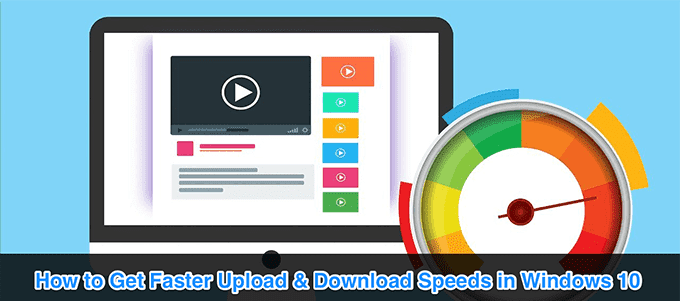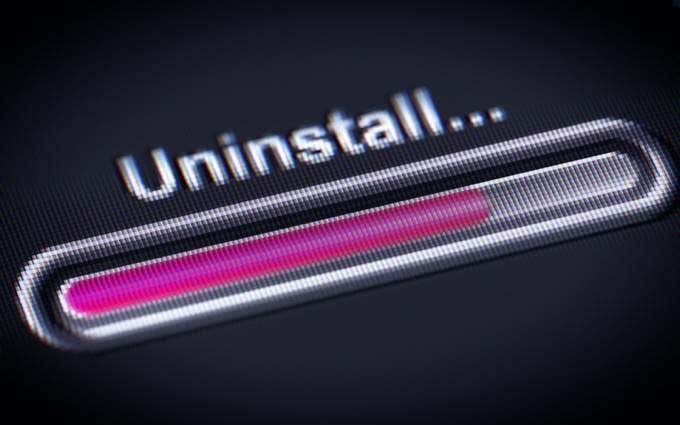Your Internet connection isn’t always the culprit for slow download and upload speeds. Sometimes, your Windows 10 PC limits your speeds for various reasons. Luckily, you can change these speed-throttling options and get faster upload and download speeds on your Windows 10 computer.
You can modify all these options yourself without any assistance from your Internet service provider (ISP).
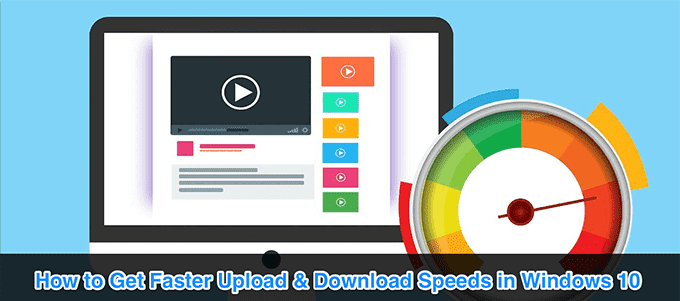
If you prefer a video, check out our YouTube channel where we posted a short video going through some of the recommendations listed in this article:
Contents
- 1 Change The Bandwidth Limit In Windows 10
- 2 Close Apps That Use Too Much Bandwidth
- 3 Disable Metered Connection
- 4 Turn Off Background Applications
- 5 Delete Temporary Files
- 6 Use a Download Manager Program
- 7 Use Another Web Browser
- 8 Remove Viruses & Malware From Your PC
- 9 Change Your WiFi Password
- 10 Upgrade Your Internet Plan
Change The Bandwidth Limit In Windows 10
Windows 10 uses a certain amount of your bandwidth to download updates for the Windows OS and apps. If it uses too much bandwidth, you can add a limit.
- Open the Settings app.
- Click Update & Security.
- Select Advanced options from the middle pane.
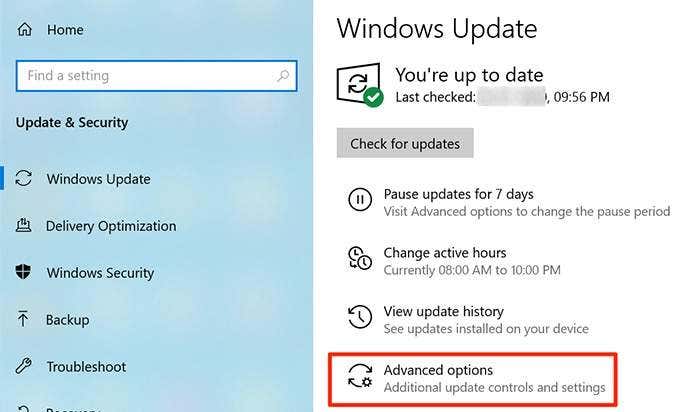
- Scroll down and click Delivery Optimization.

- Choose Advanced options at the bottom.
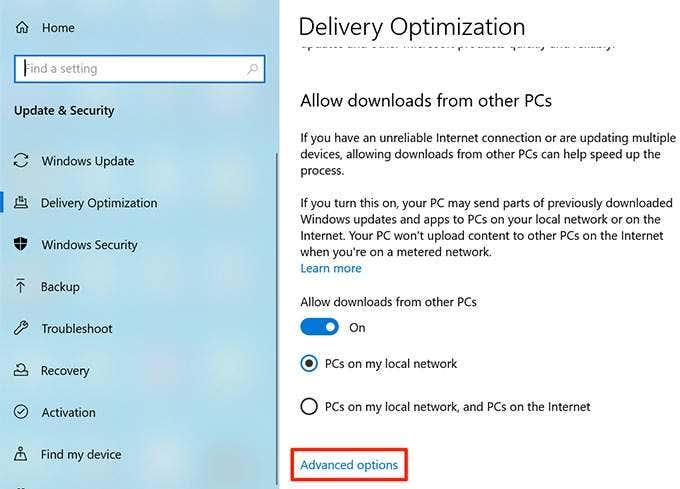
- You’ll see a slider for both Download settings and Upload settings. Here, you can specify the amount of bandwidth that Windows can use for core tasks.
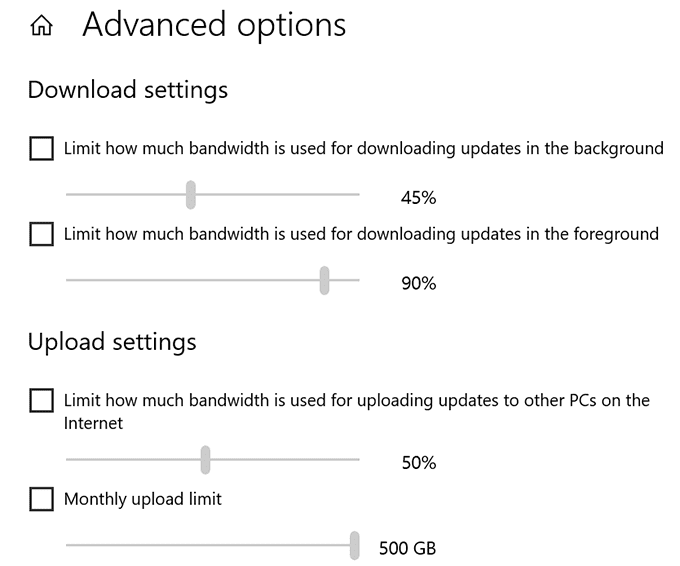
Close Apps That Use Too Much Bandwidth
Some apps use your Internet connection to download, upload, and sync files. To improve your download and upload speeds, you should keep these apps closed or disabled when you’re downloading or uploading something.
You can find these data-hogging apps in a menu on your Windows 10 PC.
- Launch the Settings app.
- Select Network & Internet.
- Choose Data usage from the left sidebar.
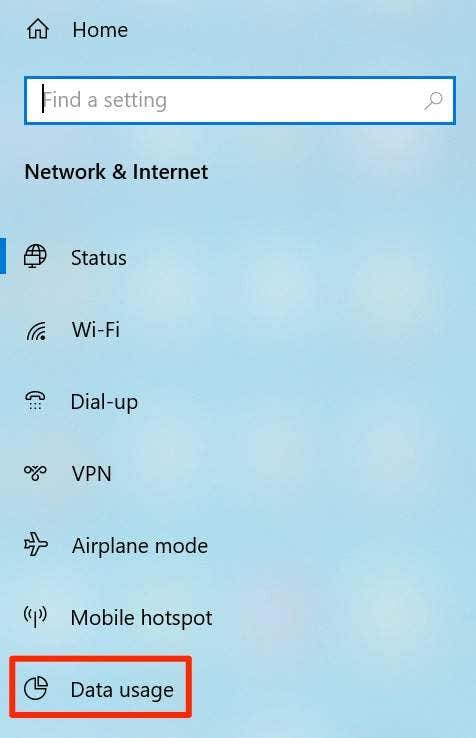
- Click View usage per app on the right-hand side pane.
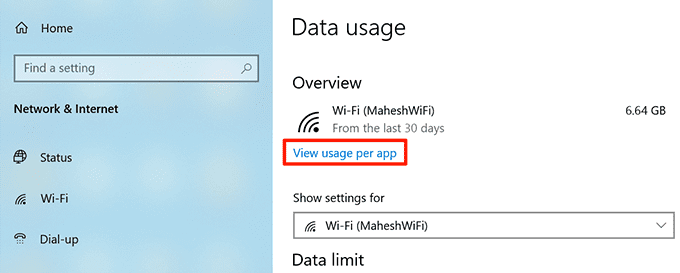
- You’ll see your apps and the data they use. Find the apps that use too much of your data and disable or close those apps.
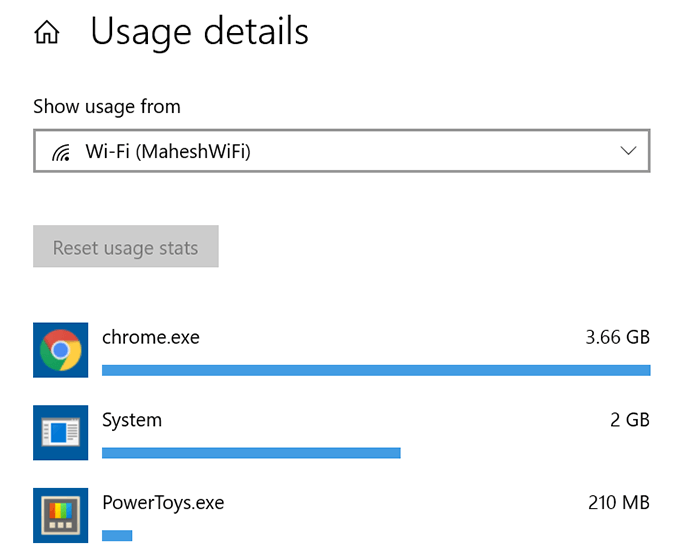
Disable Metered Connection
A metered connection lets you set a cap on your Internet connection’s data usage. If your current connection has this feature enabled, you should disable it to get faster upload and download speeds.
- Open Settings on your PC.
- Select the Network & Internet option.
- Click the Change connection properties option.
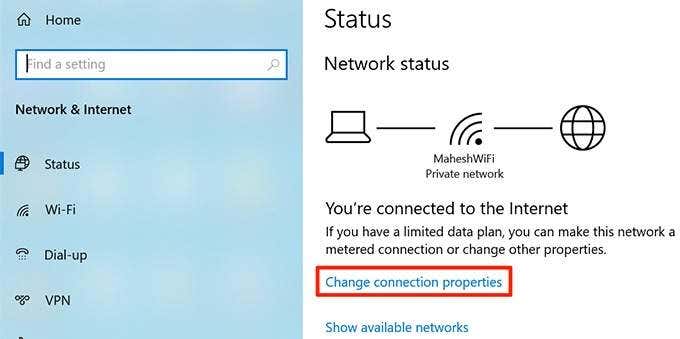
- Scroll down until you see Metered connection. Turn the toggle for this option to the OFF position.
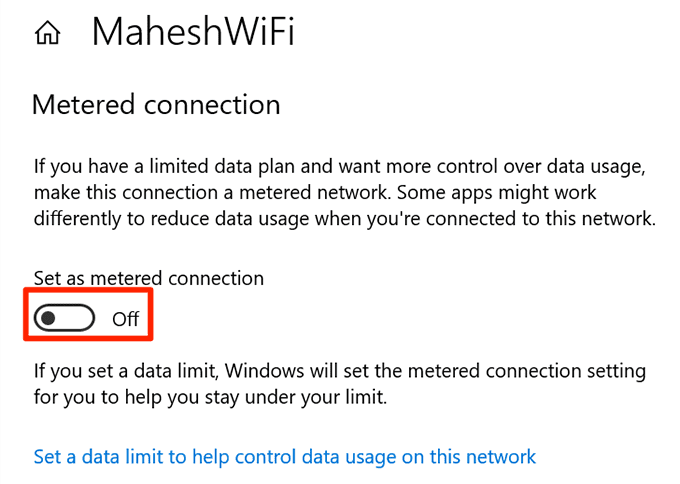
Your Internet connection is no longer restricted.
Turn Off Background Applications
Many apps running in the background use your Internet connection. As a result, you get slower download and upload speeds.
You can disable the background apps option on your PC. That’ll prevent all your apps from running in the background.
- Launch the Settings app.
- Select the Privacy option.
- Scroll down in the left sidebar and choose Background apps.
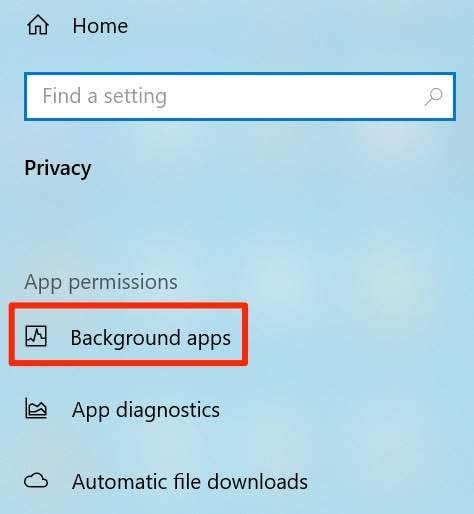
- On the right-hand side pane, turn the Let apps run in the background option to the OFF position.
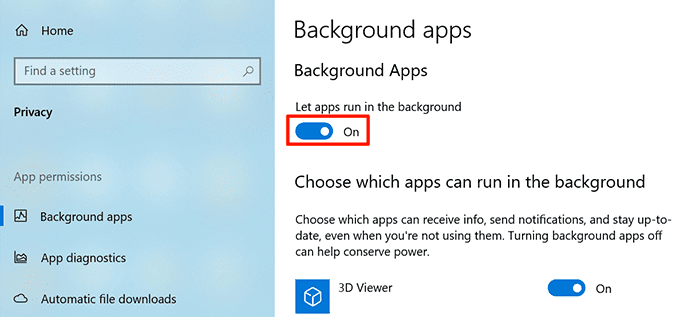
- You can also select individual apps to stop them from running in the background.
Delete Temporary Files
Too many temporary files can slow down your computer. This can affect your upload and download speeds. You can get rid of these temporary files to boost your upload and download speeds.
Removing temporary files won’t affect how your apps function.
- Press the Windows + R keys at the same time to open Run.
- Type the following into the Run box and press Enter.%temp%
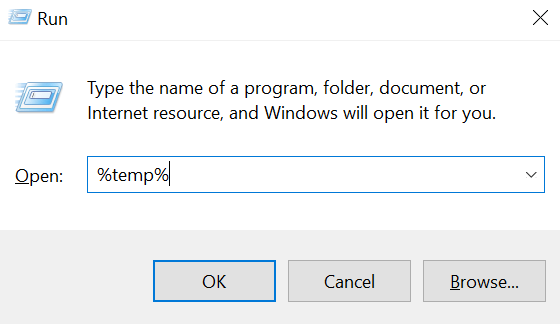
- Select all files in the temp folder, right-click any one file, and choose Delete.
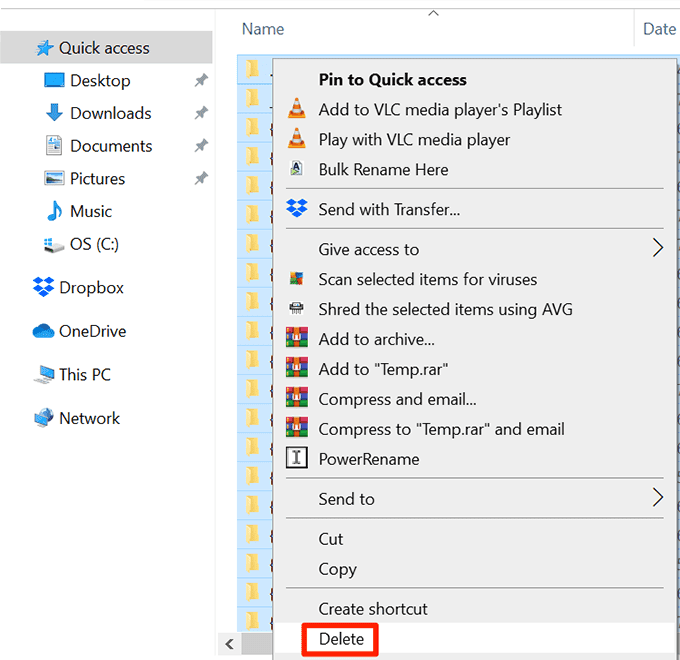
- Right-click the Recycle Bin on your desktop and select Empty Recycle Bin.
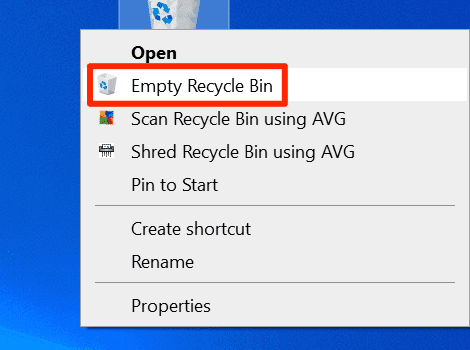
Use a Download Manager Program
Most common ways to download and upload files in Windows 10 aren’t speedy enough. There are better and faster ways to upload and download your files.
You can use a download manager instead of your default tool to download files. These download managers use multi-threaded downloading which enhances your speeds.
For uploading files, you can use the upload tool that the service you’re uploading files to provides. This sometimes provides better upload speeds than a web-based method.
Use Another Web Browser
If your default web browser isn’t downloading files fast enough, you can change your browser to speed-up your downloads. Some browsers aren’t optimized to fully utilize your Internet speed.
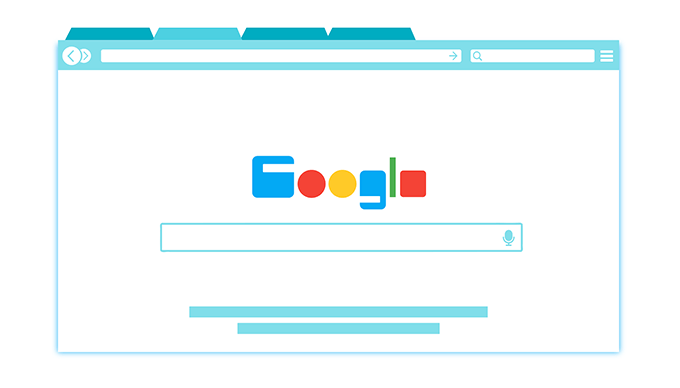
If you use Chrome, you can switch to Firefox and see if that helps improve your speeds, and so on.
Remove Viruses & Malware From Your PC
One way to get faster upload and download speeds in Windows 10 is to keep your machine free of any viruses and malware. Various viruses can throttle your download and upload speeds.
Get a good antivirus program and use it to scan and remove viruses and malware from your PC.
Change Your WiFi Password
It may be that someone knows your WiFi password and is using your connection to download files or stream content. This consumes your Internet bandwidth. As a result, you will experience slower upload and download speeds.
One way to kick others off your network is to change your WiFi password. Then don’t share the password with anyone.
- Open the settings page for your router. On most routers, you can access that page by typing 192.168.1.1 in your web browser.
- Log-in to your router as an admin. Most routers use admin as both username and password.
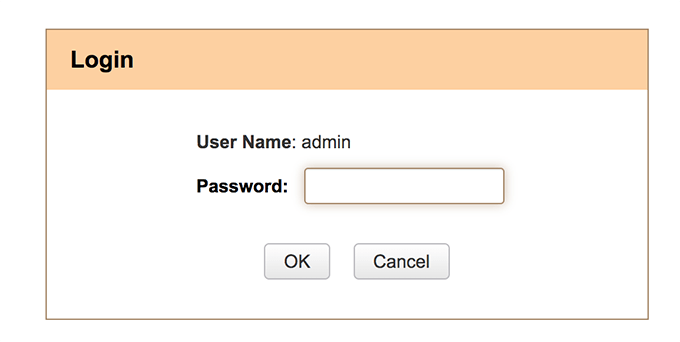
- On the settings screen, click Wireless Settings at the top.
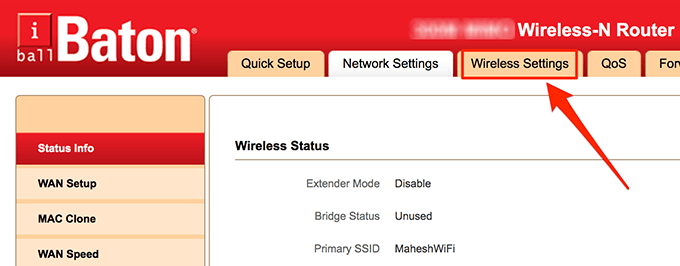
- Select Wireless Security from the left sidebar. Your router may not have this exact option but it should be something similar.
- On the right-hand side pane, enter a new password for your WiFi network in the Security Key field.
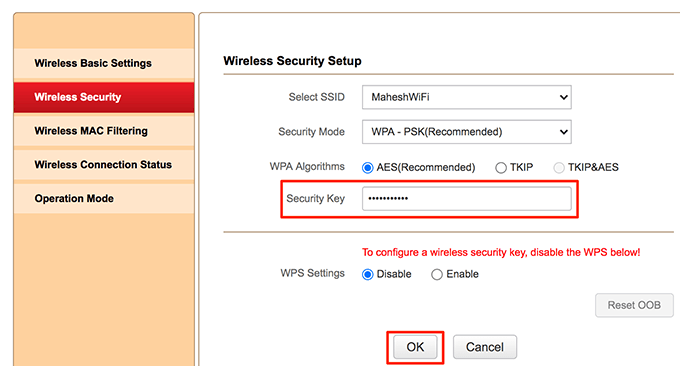
- Click OK at the bottom to save your changes. Make sure to read our other tips on properly securing your WiFi.
Upgrade Your Internet Plan
One last thing you can do to get faster download and upload speeds is to upgrade your current Internet plan. Data plans come with their own speed limits. You should get the plan that’s fast enough for your needs.
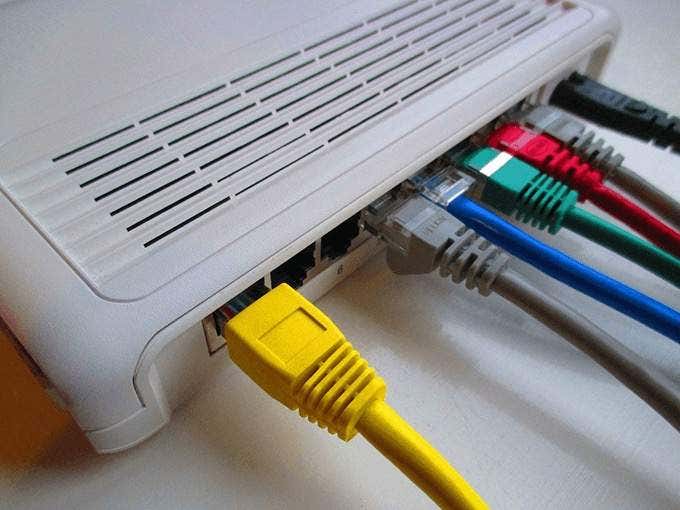
Reboot your router after the plan is upgraded. You can then enjoy faster upload and download speeds.
Are you happy with the download and upload speeds on your Windows 10 PC? Have you ever changed any options to improve your speeds? Let us know in the comments below.

